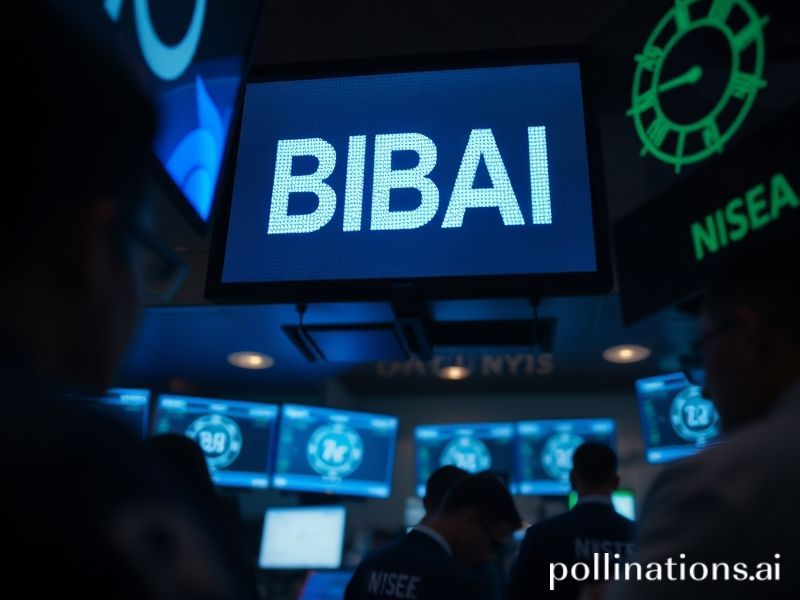Big Brother Goes Public: How BBAI Stock Became the World’s Most Ironic Investment
**The Global Cult of BBAI: When Surveillance Becomes the World’s Hottest Commodity**
In a world where privacy has become as quaint as a rotary phone, BigBear.ai Holdings Inc. (BBAI) has emerged as the poster child for our collective surrender to the surveillance state. The Virginia-based company, whose name sounds suspiciously like a cuddly dystopian teddy bear, has seen its stock price dance like a North Korean missile test—unpredictable, concerning, yet somehow captivating to watch.
The international implications are deliciously Orwellian. While European regulators clutch their pearls over data protection, Asian markets can’t seem to get enough of American surveillance technology. It’s a beautiful paradox: the same governments that ban TikTok for “security concerns” are simultaneously investing in companies that make TikTok’s data collection look like child’s play. One might call it hypocrisy, but in the defense contracting world, we prefer “strategic inconsistency.”
BBAI’s artificial intelligence solutions for national security have found eager customers from the Pentagon to partners whose human rights records would make even the most jaded diplomat blush. The company’s recent contract wins include everything from supply chain analytics to predictive maintenance—because apparently, we need AI to tell us that military equipment breaks down when you use it to bomb civilians. Who knew?
The stock’s volatility reflects our global schizophrenia perfectly. One day it’s up 15% on news of a new government contract; the next it’s down 20% because someone remembered that government spending is subject to the whims of politicians who can barely operate their smartphones. The international investor class, always eager to profit from humanity’s worst impulses, has embraced BBAI with the same enthusiasm they once reserved for oil companies and tobacco stocks.
What makes BBAI particularly fascinating from a global perspective is how it embodies the new Cold War’s commercial battlefield. While American politicians decry Chinese surveillance technology, U.S. companies like BigBear.ai are essentially doing the same thing, just with better marketing and the Stars and Stripes as a backdrop. It’s surveillance nationalism at its finest—our spying good, their spying bad.
The company’s expansion into commercial markets reveals another uncomfortable truth: the same technology used to “keep us safe” from terrorists is now being deployed to optimize Walmart’s inventory. Because in the grand casino of capitalism, nothing says “innovation” quite like using military-grade AI to ensure your local superstore never runs out of toilet paper again.
European investors, caught between their continent’s privacy fetish and the lure of American defense spending, have created a peculiar feedback loop. They publicly denounce surveillance capitalism while privately buying shares through shell companies in the Cayman Islands. It’s enough to make one nostalgic for the simple corruption of the Cold War, when everyone knew which side they were on.
The broader significance of BBAI’s stock performance lies not in its financial metrics but in what it reveals about our species’ evolution. We’ve progressed from trading beads to trading bits, from colonial exploitation to data exploitation, all while maintaining the same basic principle: someone’s making money, and someone’s getting screwed. The only difference now is that the screwing is more efficient and comes with a user-friendly interface.
As BBAI continues its international expansion, one thing becomes clear: the future belongs to those who can package paranoia as progress, surveillance as security, and oppression as optimization. The stock price will rise and fall, contracts will be won and lost, but the underlying trend is unmistakable—we’re all customers now, whether we know it or not.
Welcome to the future. It’s watching you.







